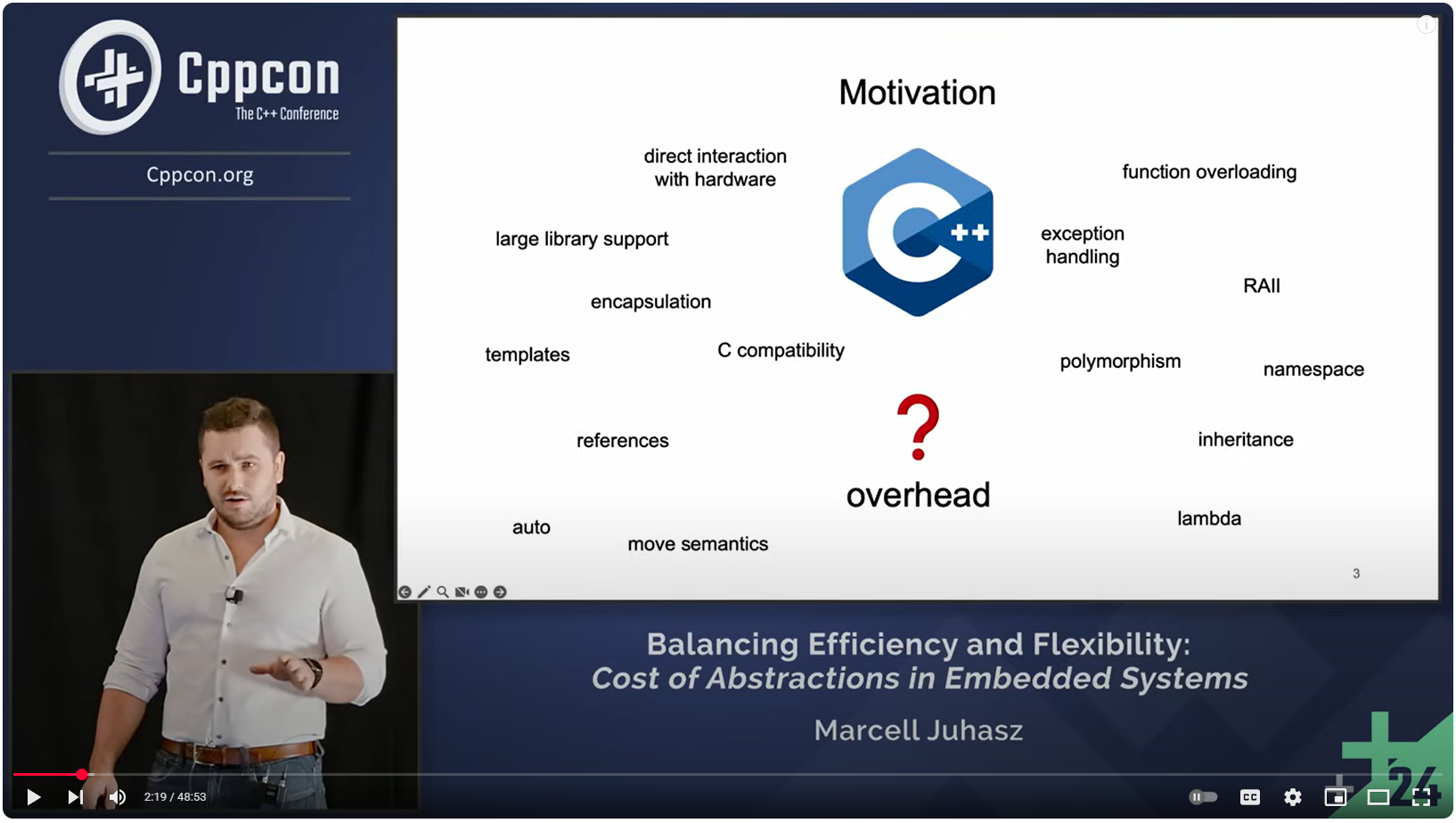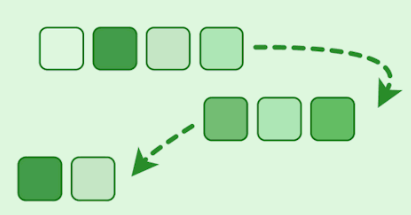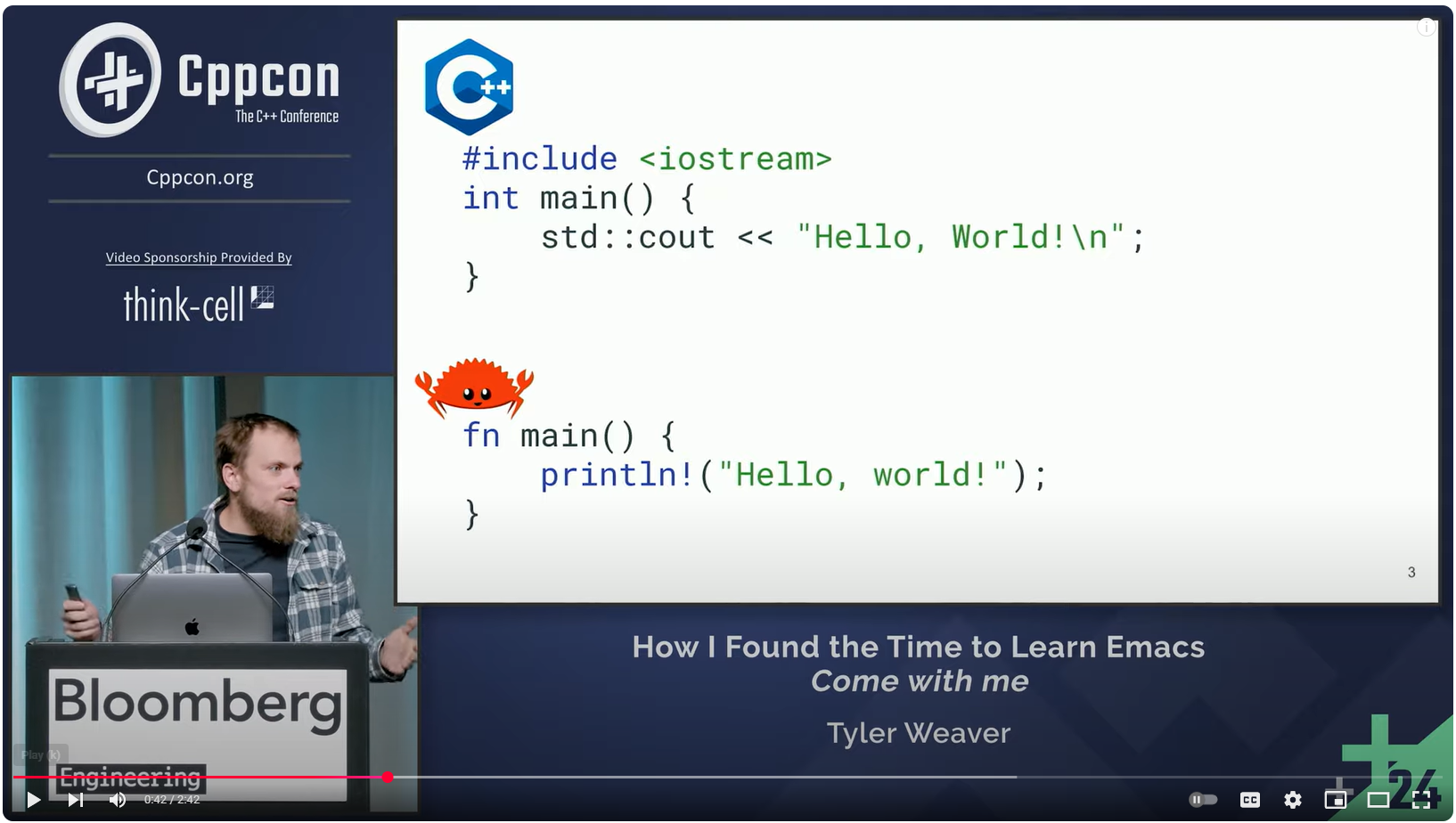CppCon 2024 Using PMR in C++ Embedded Systems for Functional Safety -- Scott Dixon
 Registration is now open for CppCon 2025! The conference starts on September 15 and will be held in person in Aurora, CO. To whet your appetite for this year’s conference, we’re posting videos of some of the top-rated talks from last year's conference. Here’s another CppCon talk video we hope you will enjoy – and why not register today for CppCon 2025!
Registration is now open for CppCon 2025! The conference starts on September 15 and will be held in person in Aurora, CO. To whet your appetite for this year’s conference, we’re posting videos of some of the top-rated talks from last year's conference. Here’s another CppCon talk video we hope you will enjoy – and why not register today for CppCon 2025!
Lightning Talk: Using PMR in C++ Embedded Systems for Functional Safety
by Scott Dixon
Summary of the talk:
Dynamic memory is often disallowed in high-assurance, c++ embedded systems but, when examining the reasons why, C++17 Polymorphic Memory Resources emerge as an unexpected solution to enable the use of C++ standard library constructs for such projects. My talk will explore how PMR can be used to meet functional safety requirements and to build embedded systems that are robust, performant, and testable.

 Here are the standard library features that will soon be usable at compile time. One topic is missing: exceptions. As they need both core language and library changes, I thought they deserved their own post.
Here are the standard library features that will soon be usable at compile time. One topic is missing: exceptions. As they need both core language and library changes, I thought they deserved their own post. Registration is now open for CppCon 2025! The conference starts on September 15 and will be held
Registration is now open for CppCon 2025! The conference starts on September 15 and will be held  Registration is now open for CppCon 2025! The conference starts on September 15 and will be held
Registration is now open for CppCon 2025! The conference starts on September 15 and will be held  Some time ago, we developed a
Some time ago, we developed a  Registration is now open for CppCon 2025! The conference starts on September 15 and will be held
Registration is now open for CppCon 2025! The conference starts on September 15 and will be held  C++ continues to refine its range library, offering developers more efficient and expressive ways to manipulate collections. In this post, we'll dive into three powerful range adaptors—
C++ continues to refine its range library, offering developers more efficient and expressive ways to manipulate collections. In this post, we'll dive into three powerful range adaptors— Registration is now open for CppCon 2025! The conference starts on September 15 and will be held
Registration is now open for CppCon 2025! The conference starts on September 15 and will be held